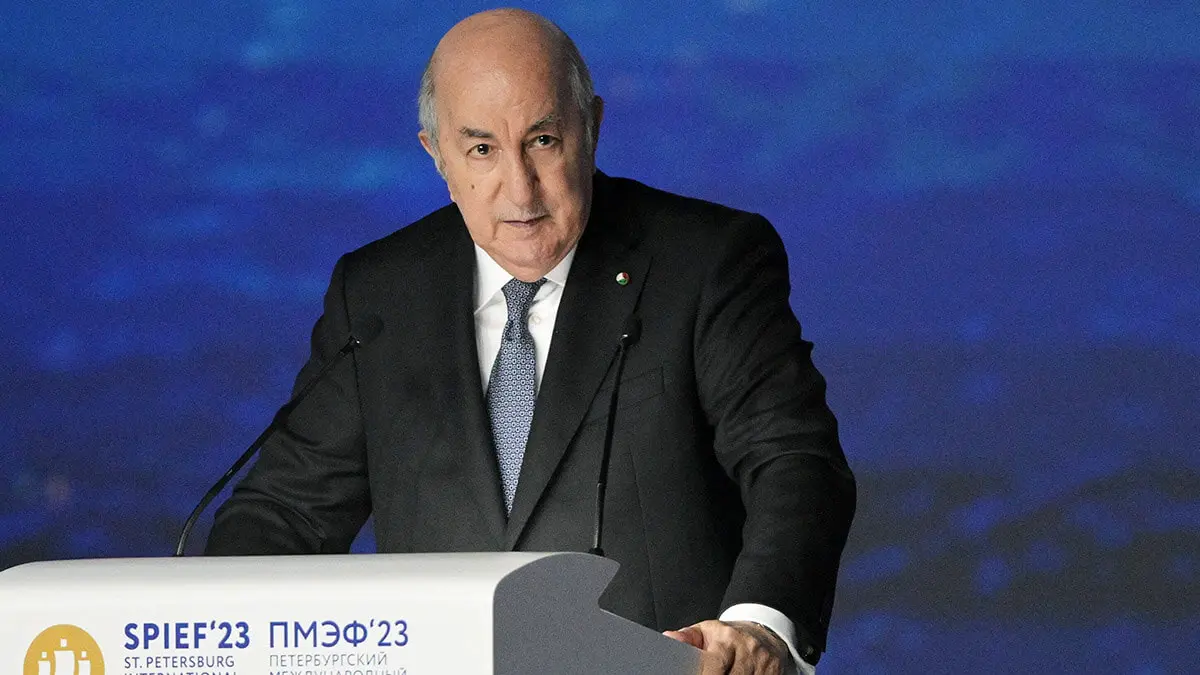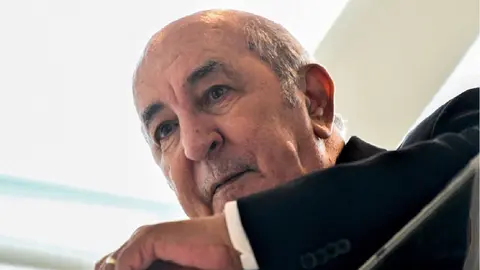To BRICS or not to BRICS? Or why Algeria's predicted failure

Stubbornness is born of narrowness of spirit
Francois de Rochefoucauld
In a deep slumber, the current political regime in Algeria imagined that it was enough to raise the flag of anti-imperialism, pay compliments to Russia and China and put a little money in the stock market at the last minute in order to join the BRICS. Imbued with a socialist past from another century, he did not want to see that this organisation is a purely economic entity in a world that no longer has any ideologies, nor did he want to understand that a strong and well-articulated economy, together with an efficient Soft Power, are the two wings that make great countries fly.
Something makes me suspect that the Algerian regime gave credence to the saying "think wrong and you will be right" until it realised that citations often play tricks. Its resounding failure to join the BRICS made clear the importance of the two pillars mentioned above. In other words, it made it clear that it has neither one nor the other.
At the economic level, the Algerian state, in its chronic laziness resulting from the polluted interventionism of the state, has for decades limited itself to buying social peace on the basis of aid and subsidies without any economic or financial projection.
At the political level, the problem is even more serious: the Algerian president, despite assiduously repeating that Algeria is a non-aligned country, has made some very serious mistakes that reflect his political obsession. Among these blunders:
- Cynically and shamelessly supporting Russia's invasion of Ukraine.
- Going on an official visit to Russia in the middle of a war, stooping so low as to be received by the Minister of Agriculture, and foolishly declaring from there that he wants to find an alternative to the dollar, as if he forgot that such a statement was the real reason for the fall of the regimes of Saddam Hussein and Gaddafi.
Let us now take a look at what Saudi Arabia and the United Arab Emirates did, which not only joined the BRICS, despite being historical allies of the US, but also imposed Egypt.
Let's start with Saudi Arabia:
When this country hosted in June 23 the Sino-Arab summit, 10 billion dollars were agreed to finance joint projects, of which 5.6 billion between Saudi Arabia and China essentially focused on the electric and autonomous car industry.
Saudi Arabia exports $78 billion to China, mainly hydrocarbons (18% of its total hydrocarbon exports), and imports $38 billion from China (22% of its imports), compared to $8 billion from Algeria.
To this must be added MBS's (Prince Muhammad Ben Salman) vision for 2030 focused on huge industrial projects and new technologies. With this vision, he has put India, Brazil and South Africa in his pocket.
In 2022, the UAE signed a historic economic agreement with India to increase its economic exchanges from 40 to 100 billion dollars over the next five years. Barely a year after the signing of this agreement, the figure has already reached 59 billion dollars. Moreover, the UAE has invested in many Indian high-tech companies.
Earlier I spoke of the notable lack of Soft Power as the second key to the Algerian regime's failure. Let us give some examples: Algeria does not get along well with India because of problems with Indian investments there, nor with Saudi Arabia and the UAE, the two most important of the five new BRICS countries along with Argentina, Ethiopia and Egypt.
Saudi Arabia abhors the Algerian regime's hostile policy towards Morocco, and Algeria's repeated rejection of Saudi mediation to resolve the conflict between the two Maghreb neighbours was received as a real offence. Riyadh also views Algeria's rapprochement with Hamas and Iran with suspicion, as well as its interference in Tunisia. A year ago, they had serious misunderstandings over the Algerian regime's unilateral stance on reintegrating Syria into the Arab League. The Algerian president's Third Worldist and warlike discourse, modelled on Bumedian's, on the submission of Arab countries to the West and Israel in the face of Algeria's independence and sovereignty, irritates the Saudi authorities (as it does the overwhelming majority of Arab countries).
The same is true of the UAE, where the country's leaders condemn Algeria's aggressive and aggressive policy towards Morocco, the main ally of the Cooperation Council for the Arab States of the Gulf (GCC) in the region. Algeria's proximity to Qatar and its support for the Doha-Ankara axis at the expense of the Riyadh-Abu Dhabi-Cairo axis further deepen the discrepancies. Muhammad ben Zayed (MBZ) does not like Algeria's hostile rhetoric towards countries that have normalised relations with Israel (including the Emirates), calling them traitors. MBZ's declination of President Tebboun's visit to Abu Dhabi reflects the degree of unease between the two governments. In Libya and Tunisia, there is also serious friction between the two countries. The various successive campaigns to denigrate the UAE by the official media in Algeria and the branding of Abu Dhabi as the capital of evil where all conspiracies against Algeria are being hatched have only aggravated the situation.
Contrary to the conciliatory mood of former Algerian President Abdelaziz Bouteflika, and in just two years, from 2021 to 2023 to be more precise, the current Algerian regime has alienated the country from the two most influential Arab countries on the international geopolitical stage, despite the fact that all economic and political analysts were certain that Saudi Arabia and the Emirates would join the BRICS for the reasons mentioned above, as well as because of their excellent relations with Russia.
As mentioned above, thanks to the support of Saudi Arabia and the Emirates, Egypt's candidacy, despite its economic and social problems, was accepted, while Algeria's was rejected despite its president's procrastination towards Russia and his political "harakirism". Sergey Lavrov's statement after the conclusion of the BRICS summit in Johannesburg on the criteria for BRICS membership reflects Russia's views on Algeria. The final communiqué of this - purely economic - group on the issue of Western Sahara further deepened the humiliation.
It is not for nothing that human beings have no greater enemy than themselves....
Or to put it another way: A horse that bucks, give it a stake!



